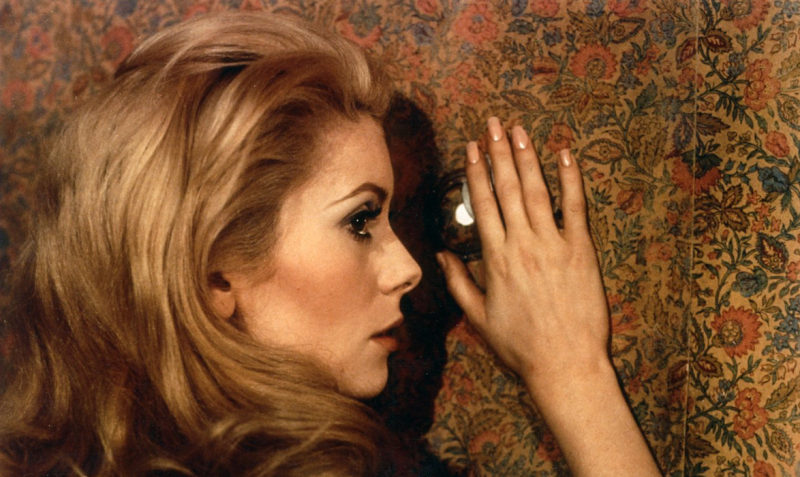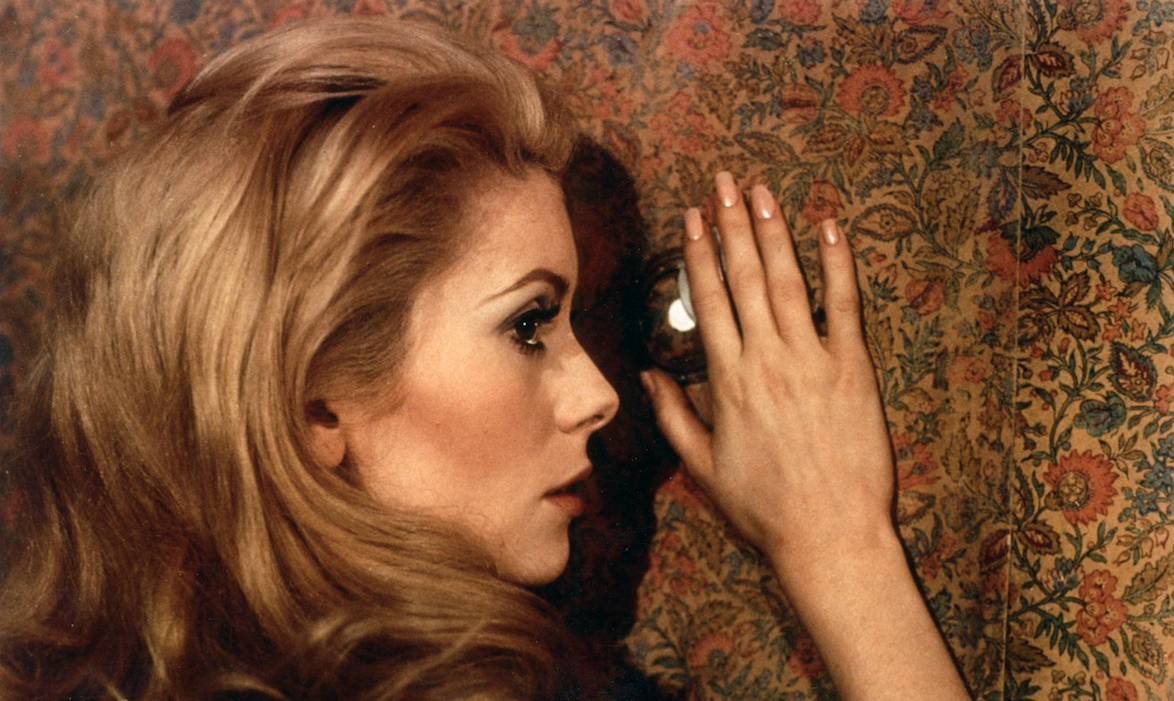By Adam Cook

Catherine Deneuve in Luis Buñuel’s ‘Belle de Jour’ (1967)
One of cinema history’s greatest provocateurs, Spanish-Mexican filmmaker Luis Buñuel’s career began with what Roger Ebert called the “most famous short film ever made,” Un Chien Andalou (1929). A collaboration with fellow surrealist Salvador Dali, the shot of an eyeball being split open ranks among the most immortal of all film images. Like in his films that followed, Buñuel sought to attack viewer complacency and bourgeois sensibilities. Unlike the “l’enfant terrible” strand of contemporary filmmakers we have today—among them Lars Von Trier, Harmony Korine and Michael Haneke— Buñuel’s societal critiques may have criticized the very sort of people who would find themselves in the audience but never felt mean or inhuman, being more playful and humorous than punishing. His most recognized masterpieces are The Exterminating Angel—the infamous plot where a group of upperclass partygoers find themselves unable to leave a room—and The Discreet Charm of the Bourgeoisie. His biggest financial success was Belle de Jour (1967), a French production starring Catherine Deneuve at the peak of her fame, and its acclaim continues to grow as a new 4K restoration enjoys a repertory tour, making a stop at Vancity Theatre from January 12th-16th.

A departure from, and deliberate subversion of, Deneuve’s theretofore romantic image in pop culture (her star turn in Umbrellas of Cherbourg was three years prior), the film is an erotic examination of human desire and fantasy. Perhaps most remarkably Belle de Jour has no explicit sex scenes, a strategy linked to Buñuel’s interest in deconstructing the way our sexuality is bound to imagination. Deneuve plays Severine, a surgeon’s wife who beings to secretly work at a brothel. The film invites us into her mind, cutting to her imagined masochistic fantasies. Controversial in its day, Belle de Jour may appear tame by our standards, but its unflinching look at middle-class marital dissatisfaction is potent and incisive.

Compared to his other work, it even seems like the one made with the most commercial appeal but part of what makes the film so effective is how it turns its own appearance inside out. Buñuel’s surrealist touches imbue the film with ambiguity and mystery as the lines between fantasy and reality blur exponentially. What elevates the film most of all is Deneuve herself in what may be her best performance. Buñuel’s intricate character study would still stand as mere male fantasy were it not for the actress’s own agency in crafting a character beyond the director’s conception. Neither a meek housewife nor a femme fatale, Severine’s internal world and depth become further out of reach the more we learn about her, and her behaviour doesn’t fit into some convenient trope. Belle de Jour purposefully confounds us, but slyly teases us to draw our own conclusions and to let the subconscious reveal more to us than does the film itself.
Belle de Jour screens January 12 – 16 at Vancity Theatre
Screening times and tickets online via goviff.org/BelledeJour or at the Box Office, 1181 Seymour Street.
